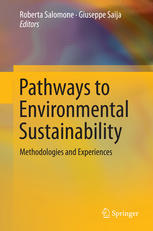

Most ebook files are in PDF format, so you can easily read them using various software such as Foxit Reader or directly on the Google Chrome browser.
Some ebook files are released by publishers in other formats such as .awz, .mobi, .epub, .fb2, etc. You may need to install specific software to read these formats on mobile/PC, such as Calibre.
Please read the tutorial at this link: https://ebookbell.com/faq
We offer FREE conversion to the popular formats you request; however, this may take some time. Therefore, right after payment, please email us, and we will try to provide the service as quickly as possible.
For some exceptional file formats or broken links (if any), please refrain from opening any disputes. Instead, email us first, and we will try to assist within a maximum of 6 hours.
EbookBell Team

4.8
24 reviewsThis book brings together, in a single volume, an overview of multiple applications of the concept of environmental sustainability, featuring examples of useful methodologies and tools for pursuing environmental targets, experiences and case studies spanning a variety of sectors, embracing both industry and research projects; and case studies applied to very different territorial contexts.
The first section of the book covers methodologies and tools for environmental sustainability, including Industrial Ecology, Urban Metabolism, Life Cycle Assessment, analysis of industrial water footprint and such chemical technologies as Hypercritical Separation Technology (HYST).
Part Two provides case studies of environmental sustainability in specific industrial sectors including electronics, pharmaceutical manufacturing, bio-energy, agriculture, food and residential construction retrofitting.
Part Three explores experiences of environmental sustainability in territorial contexts on a local, regional or national scale. This section includes chapters on sustainability in the Republic of San Marino, the European “Covenant of Mayors” urban sustainability initiative and efforts to promote sustainability in Italy, Norway and Poland among others. The book concludes with a discussion of Common Agricultural Policy (CAP) in Objective I regions of Italy.
Featuring the contributions of academics, managers operating in various productive sectors and consultants, the book aims to promote the growth and spread of scientific research and technological development for environmental sustainability.